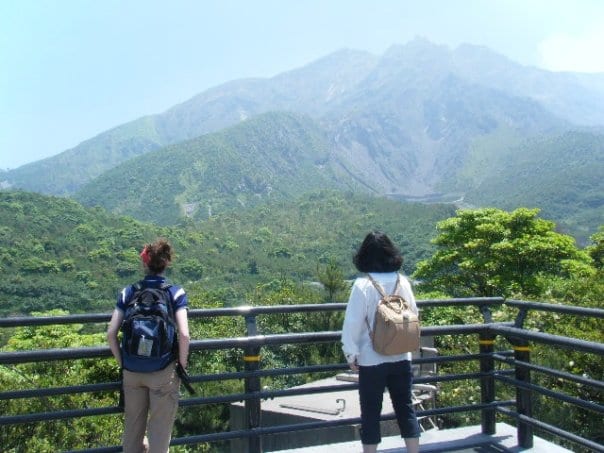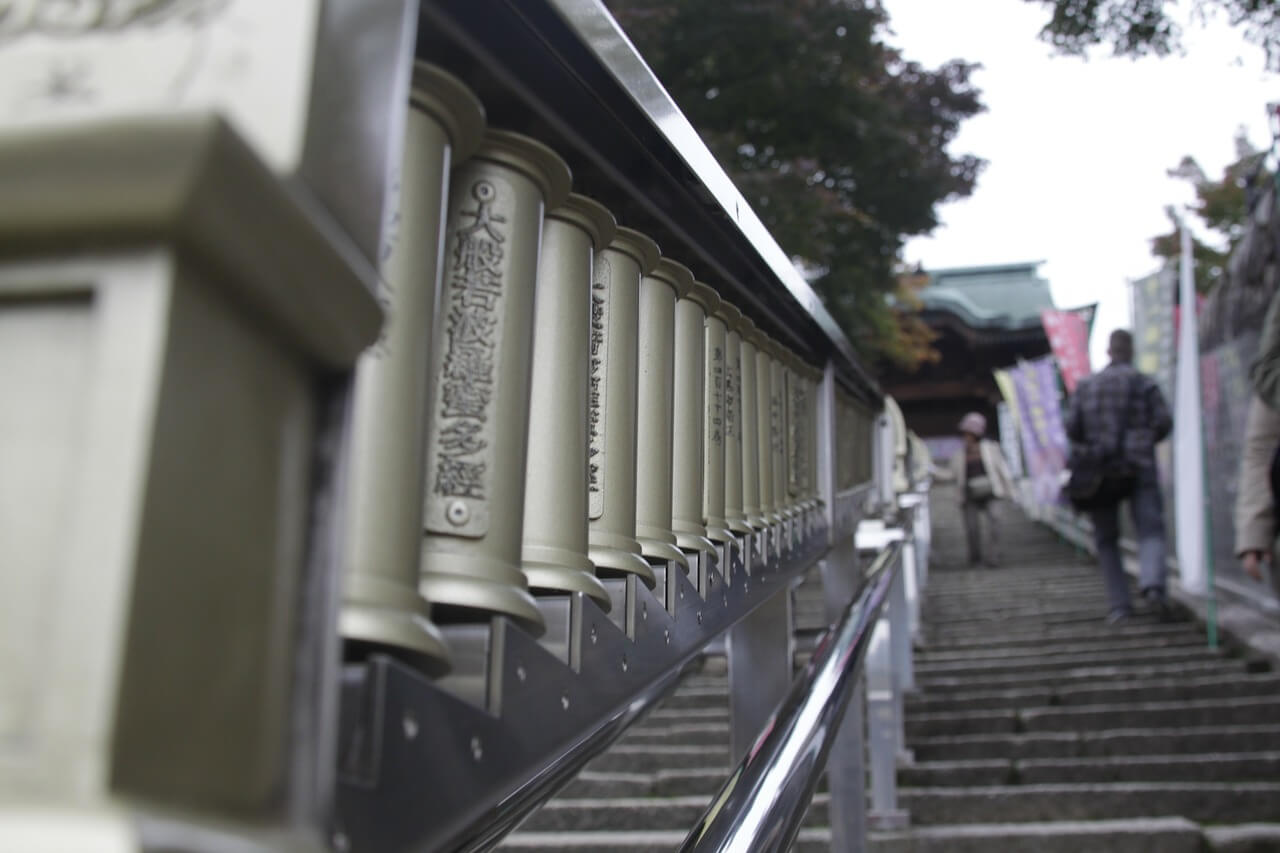A lot of people go abroad to travel and get immersed in a completely different culture. Japan is a great place to teach English abroad because it offers amazing travel destinations and a great cultural experience that will provide you with great teachings. I wrote this article to help you adapt a little bit faster to life in Japan. While travelling is a great part of the experience, there are some things you need to consider before moving to Japan.
-About the author: Erica completed the 250-hour TESOL Diploma and has more than 9 years of experience teaching English in Japan
1. Pick a Place that Aligns with your Goals

Kagoshima is a medium-sized city of about 600,000 residents, yet carries a small-town feel as everyone is well connected with each other.
It offers a picturesque view of Mt. Sakurajima, an active volcano sitting directly across the beautiful Kinko Bay, where dolphins can be spotted playfully jumping out of the water. Down south you can travel to semi-tropical beaches abound with colorful fish and coral.
In the city, you can enjoy delicious food and great shopping in the traditional covered outdoor mall “Tenmonkan” or the modern and classy Chuo Plaza.
Teaching in Kagoshima allowed me to travel to places I wanted to visit. I’ve traveled to 10 islands in southern Japan and about 20 prefectures. The islands are stunning and not to be missed. Their nature abounds in rolling farmlands, valleys, and hills, and a trip to the beach will bring you face-to-face with semi-tropical fish and beautiful coral. But the islanders are what makes the experience truly memorable; they are some of the most open, relaxed, and friendliest people in all of Japan.
Apply for TEFL jobs with OnTESOL
2. Spend time with Co-Workers
Spend time with Co-Workers outside the classroom. Parties and staff outings are very common in Japan. You are not forced to go; it is always a good idea to try everything. Go snowboarding in the winter, check out the onsen (hot springs!) with co-workers, and explore! Don’t be shy about your Japanese language abilities. Go out and enjoy things with your students and staff. It’s a great chance to practice your Japanese and a great way to build better relationships.
3. Be Mindful of the Work Ethic in Japan
One day my Japanese teacher at university forgot to come to class (an understandable mistake as the schedule was a bit confusing).
To apologize, the following week she brought a huge plate full of handmade Japanese delicacies, the likes of which I had never seen before octopus, eel, and all kinds of sushi. The way she put her heart into her apology completely blew my mind. Any North American teacher would have just said ‘I’m sorry’ and be done with it.
I was deeply impressed with my teacher’s sense of responsibility and sincere efforts to make amends and grew curious about Japanese culture. Over time, this curiosity grew into a decision to move to Japan after graduating from university, and that is exactly what I did.
When I got to Japan I noticed all my co-teachers shared the same work ethic as my Japanese professor back home. If you want to succeed in Japan, be mindful that you are expected to try your best and make up for your mistakes when things don’t work out.
Read: 22 Years in Japan by Carol Lum!
4. Make an Effort to Learn Japanese!
I speak and read Japanese. Some people seem to get by alright without it, but to me it was crucial for meeting people, making friends, getting around, and teaching.
To me, learning to fluently speak a foreign language is crucial for anyone who wants to teach a foreign language – it lets you know exactly how your students feel, and shows you through experience what activities are and aren’t effective. It also helps you understand the culture, which in turn makes it easier for you to teach because you understand why students think and feel the way they do about learning a new language. And it just makes everything so much more fun! Being able to communicate with 100% of the people around you is–for obvious reasons–far, far better than only being able to communicate with 2% of the people around you.
But learning Japanese is not just to adapt to life in Japan better. Consider this, would you take piano lessons from a teacher who doesn’t know how to play the piano?! It sounds unbelievable, but every day in countries around the world, people learn subjects from teachers who have never actually learned the same subject!
In the world of ESL, this is the case for a lot of native-English speakers who complete a TESOL certification course and go abroad without having ever learned to speak, read, or write a foreign language. It is possible to teach someone a foreign language without having mastered a foreign language oneself, and TESOL courses serve to bridge that gap of lack of practical experience.
Nonetheless, a TESOL-certified teacher who has never learned a foreign language is still teaching a subject that they have no personal experience with, and this does have an impact on students. During the TESOL course, teachers do learn to identify effective techniques and methods, but when they begin to teach in real life and start encountering or creating new material or face new classroom situations, teachers without personal experience learning a foreign language have very limited ability to accurately determine if the new material will actually be useful for their students.
Read: Teaching English in Japan Guide

In my efforts to learn Japanese, I came across various textbooks and teaching methods that I found were not helpful to me at all, and others that were very beneficial.
The reason I knew which ones worked and which ones didn’t is that I went through the process myself and saw the results (or lack thereof). Later, when working in Japan I saw teacher after teacher using methods to teach speaking that I knew from personal experience were actually incredibly ineffective for building speaking skills.
These teachers were using textbooks designed to teach speaking, but because the teachers themselves had never learned a foreign language, they could not identify which materials in the textbook were actually good for speaking, and which were best to put aside or adjusted to improve efficacy.
I am not suggesting that a teacher needs to be completely fluent in a foreign language before they begin teaching. But I do believe that a teacher needs to be committed to learning a foreign language in order to build a solid understanding of what materials and methods are effective, and also to learn how to adjust and create new methods to give their students the highest quality lessons possible.
To all native English-speaking ESL teachers who hesitate about learning the local language. If for nothing else than for the sake of your students, I urge you to take the plunge and start learning! Your students will thank you for it, and your time in class will be all the more meaningful and rewarding.




